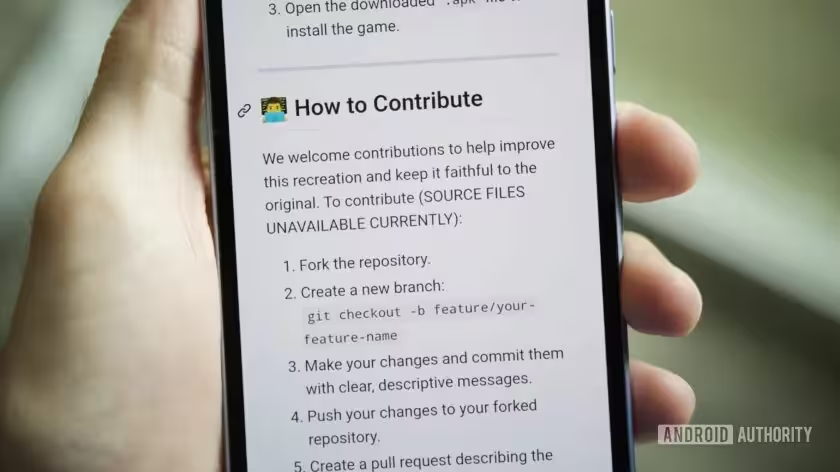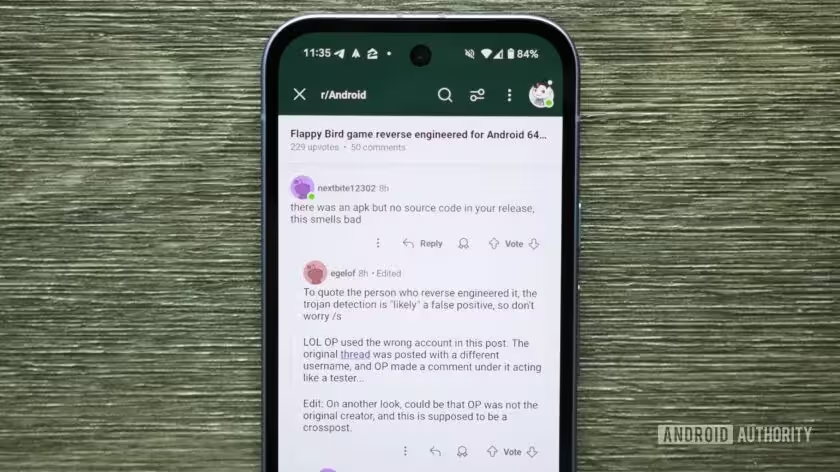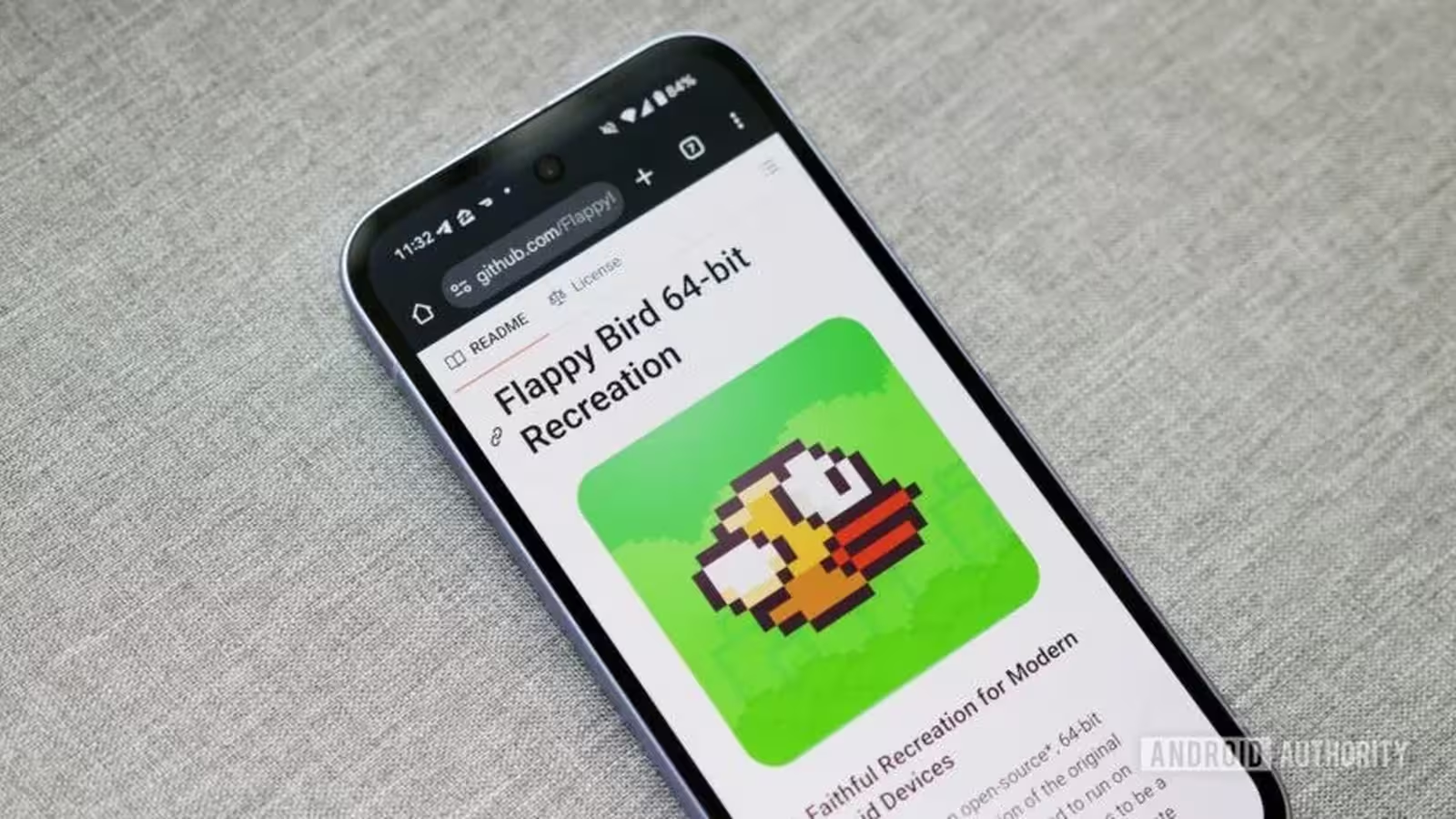5 Minutes
The Resurrection of a Mobile Gaming Classic
If you owned an Android device in the 2010s, chances are you’ve tapped your screen furiously in one of the most addictive games of the era—Flappy Bird. Despite its deceptively simple gameplay, Flappy Bird became a global phenomenon before being unexpectedly pulled from app stores, sparking nostalgia among millions of mobile gamers. Fast-forward to 2025, and playing the genuine original Flappy Bird on a modern Android phone has become a distant memory—until now.
Recently, the Android enthusiast community was abuzz after a developer claimed to have revived Flappy Bird for contemporary devices. By reverse engineering the original app and updating it to run on a 64-bit Java platform, this developer managed to make Flappy Bird accessible to today’s generation of smartphones, complete with the familiar retro visuals and challenging mechanics.
But as promising as this project sounds, Android users should approach with caution. There’s more beneath the surface—and not all of it is good news.
Examining the Hidden Risks of the New Flappy Bird APK
Lack of Source Code Transparency
On the surface, downloading this new Flappy Bird APK might appear to be a harmless nod to a bygone gaming era. However, one major red flag stands out: the absence of open-source code. The project’s GitHub page provided an easy way to grab the APK, but it did not include any source code for public review. In the world of open-source development, source code availability is crucial for trust and security. When developers publish their applications without transparency, users can’t verify if the code is secure, harboring no malicious elements like spyware, data tracking, or other security threats.
The problem is amplified here because the developer is entirely new to the GitHub platform—this is their first public project. Without a verifiable track record, there’s no reputation to help judge the legitimacy of the software.

Potential Security Threats: Trojan Warnings
User concern escalated after several reports surfaced about the APK triggering antivirus alerts. Specifically, some users found that the application contained a file flagged as “Trojan:Script/Wacatac.B!ml,” a known Trojan variant. While the developer insisted these were likely false positives and claimed that most users’ virus scanners returned clean results, this does little to reassure cautious Android users.
Further adding to the suspicion, shortly after these issues came to light, the project's GitHub repository was deleted. The APK then reappeared on a third-party file-hosting site, MediaFire, further diminishing confidence in its legitimacy and safety. Trusted Android apps should never require users to sideload APKs from obscure file hosts, especially when security warnings persist.
A Summary of Red Flags
For those keeping track, here’s a quick rundown of the warning signs associated with this new Flappy Bird release:
- No previous development history from the creator
- APK distributed with zero open-source code for independent review
- Multiple Trojan alerts from security software
- Project removal from GitHub and subsequent file hosting on MediaFire
While it’s true that every developer has to start somewhere, and false positives are not unheard of in antivirus scans, the convergence of these issues should give any tech-savvy Android user pause.
How Does This Flappy Bird Stack Up?
This notable attempt to revive Flappy Bird succeeds in re-creating the original's look and feel for today's 64-bit Android landscape. If legitimate, it would allow enthusiasts to relive their old high scores and chase the game's notoriously difficult challenge again. Yet, without source code transparency or vetting by a major platform, these features are ultimately overshadowed by security concerns. Unlike apps distributed through platforms such as Google Play or the Epic Games Store, this project arrives with no guarantees of malware screening, data privacy, or developer accountability.

Smart and Secure Alternatives to Playing Flappy Bird
There’s good news for those still longing for the nostalgic thrill of guiding a pixelated bird through endless green pipes. A reputable—and safer—alternative exists. Recently, an authorized recreation of Flappy Bird launched on the Epic Games Store for Android. While it isn’t an exact one-to-one clone, it closely mirrors the original’s addictive formula while introducing fresh features and updated game modes. Most importantly, this version has undergone the necessary checks and validations by Epic, ensuring it is free from malware or hidden code.
Choosing legit app stores for mobile gaming isn’t just about convenience—it’s also about data protection and device integrity. Sideloading APKs from unapproved sources often means sacrificing the layers of security and scrutiny enforced by established platforms. For tech enthusiasts and casual gamers alike, trusting curated digital marketplaces reduces risk and enhances peace of mind.
Lessons Learned: Staying Safe While Downloading Android Apps
The Flappy Bird revival saga is a timely reminder of the persistent risks that come with downloading Android applications from unverified places. Sideloading can be tempting, especially for “lost” classics or apps pulled from mainstream stores. But unless a project is open-source or distributed by a reputable provider, it’s safer to wait. Demand source code, community reviews, and transparent developer histories before granting new apps access to your data and device.
Ultimately, while the spirit of Flappy Bird lives on, so do the digital dangers of our increasingly connected world. Protect your phone—and your personal information—by prioritizing security over nostalgia. For now, stick to official channels to get your Flappy Bird fix and explore the best the Android gaming ecosystem has to offer. Your high score dreams are still possible—just without the hidden risks.
Source: androidauthority



Comments